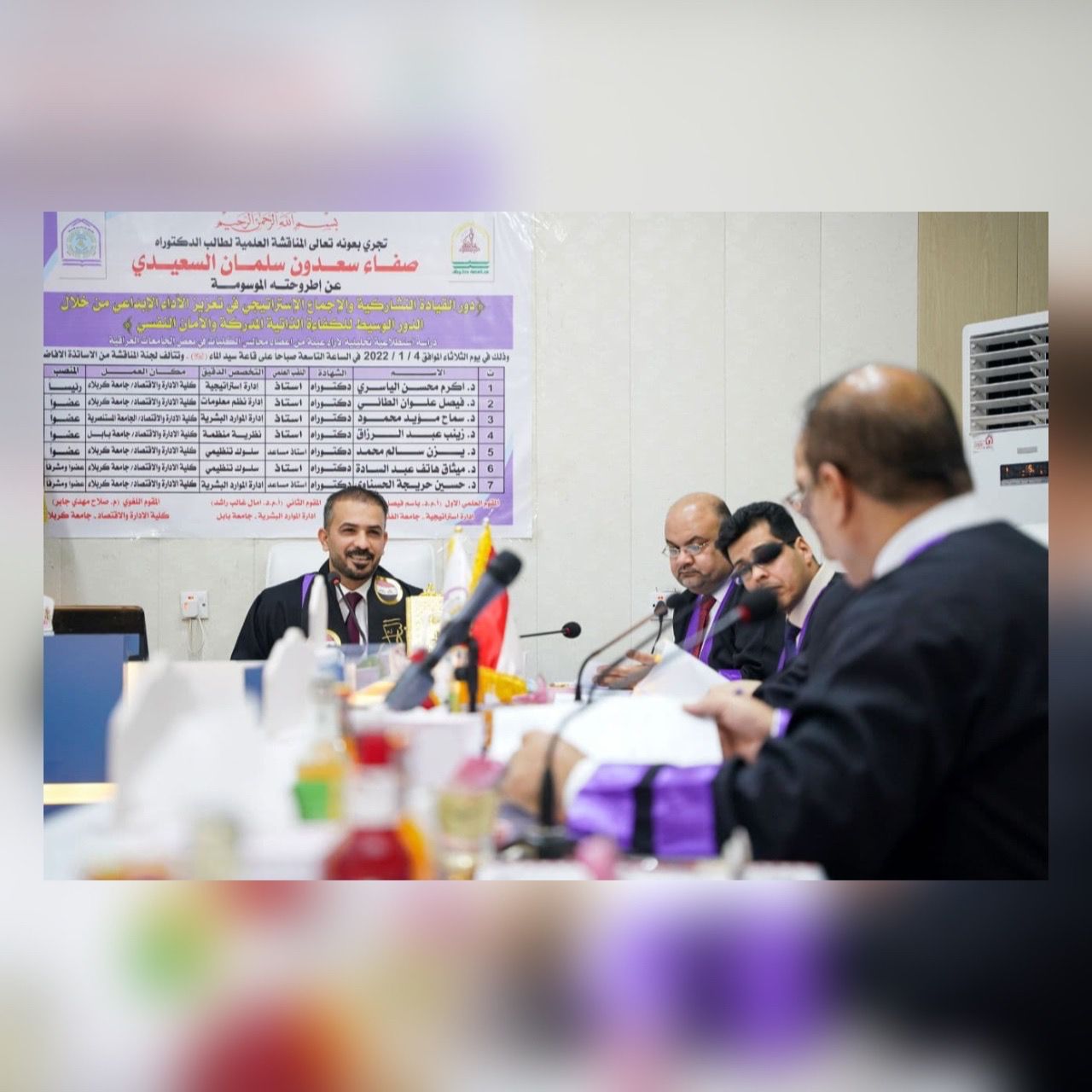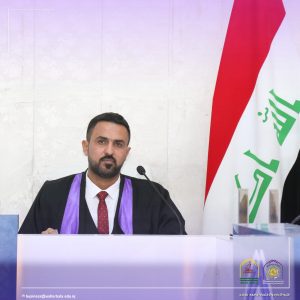The Role of Shared Leadership and Strategic Consensus in enhancing Innovative Performance through the mediating role of Perceived self-efficacy and psychological safety
(An exploratory, analytical study of the opinions of a sample from members of college councils in some of Iraqi universities)
A Dissertation Submitted to the Council of College of Administration and Economics , University of Kerbala as a Partial Fulfillment of the Requirements for the Degree of Doctorate in Business Administration Sciences
Submied by
Safaa Saadoon Salman Al-Saeede
Supervised by
Prof. Dr Miethak Hatif Al-Fatlwi Assist.Prof. Dr Hussein Hurajah Al- Hasnawi
The study aimed to test the effect of the relationship between participatory leadership and strategic consensus as independent variables in enhancing creative performance through perceived self-efficacy, and psychological safety as mediating variables in three universities (Baghdad, Karbala, and Muthanna). To achieve this, the variables were measured with ready-made one-dimensional scales at the team level, as the participatory leadership variable was measured based on the (Wood, 2005) scale. and strategic consensus based on a scale (Camelo & Hernández, 2010). While the scale (O’Regan, 2011:8) was used to measure the creative performance. The perceived self-efficacy variable was measured using a scale (Scholz & Schwarzer, 2002). And the psychological safety variable according to the scale (Edmondson, 1999). The descriptive-analytical approach was adopted as a method of study. The questionnaire was a basic tool for collecting data from a sample of (468) college council members in three universities (Baghdad, Karbala, and Muthanna). Several appropriate statistical methods were used to analyze the data, such as normal distribution test, confirmatory factor analysis, descriptive statistics, Pearson correlation analysis, structural equation modeling (SEM), and path analysis. The study found an indirect effect of participatory leadership and strategic consensus combined on creative performance through the mediation of perceived self-efficacy and psychological safety combined, and this indicates the importance of the focus of the president and members of college councils on adopting participatory leadership behaviors and strategic consensus because of their administrative and cognitive depth that achieves a state Integration at the team level, which affects the achievement of a higher benefit and value for the members of the board and positively motivates them towards achieving high levels of efficiency and maximizing their sense of psychological safety when they perform the tasks assigned to them. Which establishes a positive and supportive work environment in their skills flourish, develops their talents, and enables them to achieve an advanced level of creative performance on the individual and team levels.Key Terms: participatory leadership, strategic consensus, perceived self-efficacy, psychological safety, creative performance (the following universities, Baghdad, Karbala, Muthanna).































































